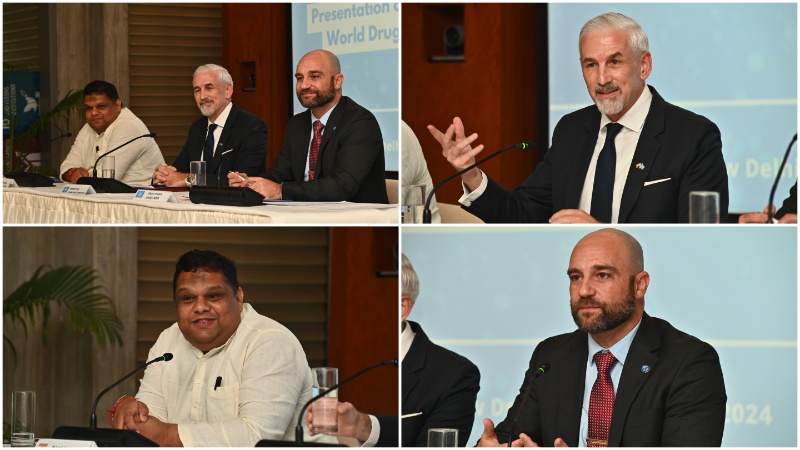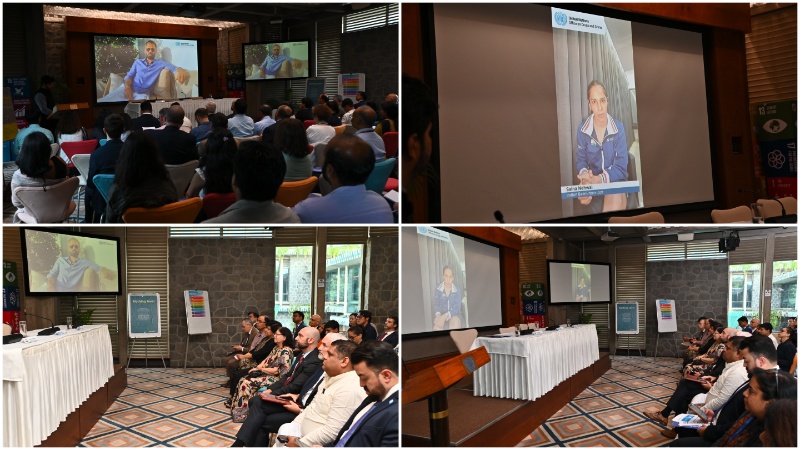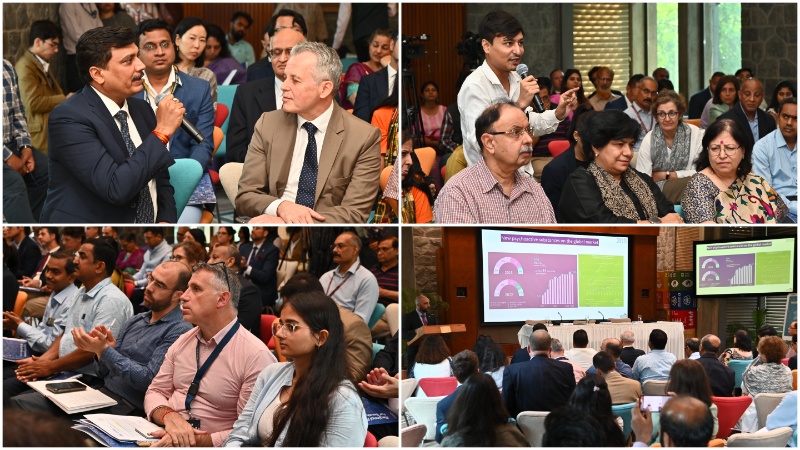India: Presentation of key findings from UNODC’s World Drug Report 2024 to mark the International Day Against Drug Abuse and Illicit Trafficking

New Delhi, India/27 June 2024: The latest UNODC World Drug Report 2024 highlights a concerning rise in global drug use and the emergence of potent new synthetic opioids, exacerbating the world drug problem and its associated health, social, and environmental impacts.
According to the report, the number of people using drugs reached 292 million in 2022, a 20 percent increase over the past decade.
Cannabis remains the most widely used drug globally, with 228 million users, followed by opioids (60 million users), amphetamines (30 million users), cocaine (23 million users), and ecstasy (20 million users). The report also underscores the environmental impact of drug production and trafficking, including the harmful effects of spraying illicit substances on crops.

Presenting the findings of the report at the UN House in New Delhi, Marco Teixeira, UNODC Regional Representative for South Asia, said, “The situation is serious. Our responses cannot wait. Our responses cannot be disjointed.” “Evidence-based prevention programs give people, especially young people, the knowledge and skills they need to avoid drug use,” he added. Special messages from Indian Actor-Entrepreneur Suniel Shetty and Badminton Icon Saina Nehwal were also screened at the event, raising awareness against drug use.
Despite an estimated 64 million people worldwide suffering from drug use disorders, only one in 11 receives treatment. Women, in particular, face significant barriers, with only one in 18 women with drug use disorders receiving treatment compared to one in seven men.
Priyank Kanoongo, Chairperson of the National Commission on Protection of Child Rights, emphasized the need to address these disparities, saying, "We must protect vulnerable populations, especially children, from the harmful effects of drug trafficking and ensure their right to a healthy and safe environment."
The report also reveals that drug trafficking fuels organized crime groups, which are diversifying into other illegal economies, such as wildlife trafficking, financial fraud, and illegal resource extraction.
Addressing drug use and its consequences requires a comprehensive strategy that includes prevention, treatment, and the strengthening of law enforcement to disrupt the criminal networks profiting from these illicit activities.
“Our efforts must be balanced, uphold rights to health, uphold human rights and help people struggling with addiction,” said Shombi Sharp, UN Resident Coordinator in India.

Following a drastic 95 percent decrease in Afghanistan’s opium production in 2023 and a 36 percent increase in Myanmar, global opium production fell by 74 percent in 2023. Long-term implications, including changes in heroin purity and a potential rise in demand for opiate treatment services, may soon be felt in countries affected by Afghan opiates.
The report emphasizes that the right to health is an internationally recognized human right that applies to all individuals. It calls for increased efforts to ensure that everyone, regardless of their drug use status, has access to the necessary health services and support.
The activity contributed to SDG 3, SDG 16 and SDG 17: https://sdg-tracker.org/
Read the World Drug Report 2024: https://www.unodc.org/unodc/data-and-analysis/world-drug-report-2024.html